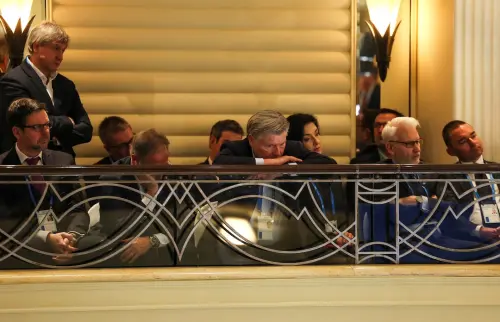In Munich on Feb 14, U.S. Vice President JD Vance accused European leaders of stifling free speech and failing to manage immigration, sparking a strong response from Germany's Defence Minister and overshadowing discussions at the Munich Security Conference.
Although peace talks between U.S. President and the Russian leader were anticipated to dominate the conference, Vance focused more on a perceived decline in core values such as free speech and what he described as uncontrolled immigration in Europe, rather than Russia or Ukraine.
During the conference, Germany's Defence Minister criticized Vance's comments, labeling them as "unacceptable" and asserting that Vance's remarks questioned democracy not only in Germany but in Europe as a whole, underlining the differing perspectives between the U.S. administration and European leaders.
Vance met with Alice Weidel, leader of the far-right Alternative for Germany (AfD) party, a move considered controversial ahead of the German federal elections next week.
The discussions at the conference mentioned the need for Europe to boost its defense efforts, aligning with Vance's statements that Europe should assume a more significant role in its security. NATO Secretary General backed this view, emphasizing the necessity for Europe to enhance its defense capabilities.
Vance reiterated Trump's call for increased defense contributions from Europe and advocated for a gradual transfer of responsibilities from the U.S., particularly urging Europe to play a more active role in its security.
Previously seen along with the AfD leader, Vance hinted at potential political collaboration with the AfD, in contrast to mainstream German parties, despite the AfD being monitored for suspected right-wing extremist ties and currently holding a substantial polling percentage ahead of the impending general election.
Furthermore, Billionaire Elon Musk, a major contributor to Trump's 2024 election campaign and the current head of Trump's spending reduction task force, has publicly endorsed the AfD.
